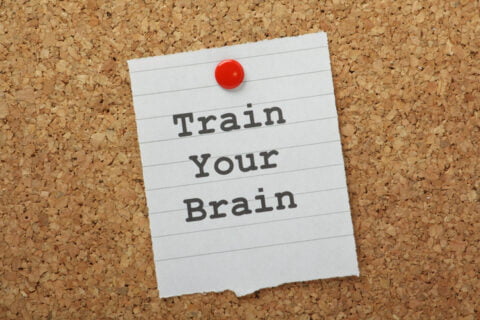Medically Reviewed by:
Khushal Girigosavi, a peer reviewer at the Cureus Journal with numerous research papers to his name, maintains high standards in medical research.
Have you ever wondered if there is a connection between arthritis and brain health? It’s a question that many people may not think to ask, but it’s an important one. Arthritis affects millions of people around the world, causing pain and stiffness in the joints. But what about its impact on the brain?
| Fact box: What is arthritis? Arthritis is a health condition where one sees the swelling and tenderness of one or more joints. Its main symptoms are joint pain and stiffness, which typically worsen with age. The most common types of arthritis are osteoarthritis and rheumatoid arthritis. |

As we age, cognitive function becomes increasingly important. We rely on our brains for everything from remembering important information to making decisions. So, understanding how arthritis may affect the brain is crucial for maintaining overall health and well-being.
Recent research has shown that there may indeed be a connection between arthritis and brain health. Studies have found that individuals with arthritis are at an increased risk of experiencing cognitive decline compared to those without the condition. This means that arthritis not only affects the joints but can also impact our ability to think, learn, and remember.
In this blog post, we will explore the intricate relationship between arthritis and brain health. We will delve into the various ways in which arthritis can affect cognitive function and discuss six important insights into this connection. By shedding light on this topic, we hope to provide you with valuable information that can help you better understand your neurological condition and take steps to promote brain health.
Arthritis is a condition that affects the joints, causing pain, stiffness, and inflammation. It is commonly associated with old age and can significantly impact a person’s quality of life. But did you know that arthritis can also affect your brain health?
Given below are six important insights that uncover the connection between arthritis and brain health and explore it in detail.
Insight 1: Arthritis-related inflammation can affect the brain
Inflammation is a natural response of the body to injury or infection. However, chronic inflammation caused by conditions like arthritis can lead to long-term damage, not only in the joints but also in other parts of the body, including the brain. Research has shown that inflammatory markers associated with arthritis can increase the risk of cognitive decline and even neurodegenerative diseases like Alzheimer’s.
Insight 2: Arthritis medications may have an impact on cognitive function
Many individuals with arthritis take medications to manage their symptoms and reduce inflammation. However, some of these medications, such as nonsteroidal anti-inflammatory drugs (NSAIDs), have been linked to cognitive impairment in older adults. It is essential to discuss any potential side effects of arthritis medications with your healthcare provider to ensure optimal brain health.
Insight 3: Pain from arthritis can lead to cognitive difficulties
Individuals with arthritis often experience persistent pain, which can lead to difficulty concentrating, memory problems, and decreased cognitive function, potentially accelerating memory loss and increasing cognitive age. Living with chronic pain can take a significant toll on your mental well-being. Managing pain effectively through proper treatment and lifestyle changes may help alleviate these cognitive difficulties, reducing the impact on memory loss and helping to maintain cognitive age at a healthier level.
Insight 4: Physical activity is crucial for maintaining brain health
Regular exercise has numerous benefits for both physical and mental health. For individuals with arthritis, engaging in physical activity may seem challenging due to joint pain and mobility limitations. However, research has shown that regular exercise can help. It can improve cognitive function, reduce the risk of cognitive decline, and alleviate arthritis symptoms. It is essential to consult with a healthcare professional to develop an exercise plan tailored to your specific needs.
| Quick Tip: Neuroprotective effects of exercise Engaging in regular physical exercise has been shown to have numerous benefits for both joint health and brain health. Exercise promotes the release of chemicals in the brain that help to protect against cognitive decline. It also improves blood flow, which is crucial for delivering essential nutrients and oxygen to the brain. |
Insight 5: Mental health plays a role in brain health for individuals with arthritis
Living with a chronic condition like arthritis can have a significant impact on mental health. Depression and anxiety are common among individuals with arthritis, and these mental health issues can further contribute to cognitive difficulties. Seeking support from mental health professionals, participating in support groups, and practising stress management techniques can help promote overall brain health.
Insight 6: A holistic approach is key to maintaining brain health with arthritis
Taking care of your brain health involves more than just managing arthritis symptoms. A holistic approach that includes adequate sleep, a healthy diet, social engagement, and intellectual stimulation is crucial for preserving cognitive function. Engaging in activities that challenge your brain, such as puzzles, reading, or learning new skills, can help keep your mind sharp.
Arthritis-related inflammation, medications, pain, physical activity limitations, mental health issues, and overall lifestyle factors all play a role in how arthritis can impact cognitive function. Through understanding and proactive measures, individuals living with arthritis can enhance their overall well-being and quality of life. Remember to consult with healthcare professionals for personalized guidance and support on managing both your arthritis and brain health journey.
Conclusion
Understanding the connection between arthritis and brain health is crucial for maintaining a good quality of life as we age. Throughout this blog, we have uncovered six important insights that shed light on how arthritis can impact our cognitive function. To sum it up:
- Research has shown that individuals with arthritis may be at a higher risk of experiencing cognitive decline compared to those without the condition. This means that taking proactive steps to manage your arthritis may also help protect your brain health.
- Chronic inflammation, commonly associated with arthritis, can have negative effects on the brain. By managing inflammation through medication, lifestyle changes, and regular exercise, we can potentially reduce the impact it has on our cognitive abilities.
- Pain and sleep disturbances often accompany arthritis and can further contribute to cognitive difficulties. Seeking appropriate treatment for pain management and implementing healthy sleep habits can greatly improve brain function.
- Additionally, engaging in mentally stimulating activities such as puzzles, reading, or learning new skills has been shown to promote brain health. These activities help keep our minds active and sharp despite the challenges posed by arthritis.
- Moreover, maintaining a healthy lifestyle that includes a balanced diet rich in antioxidants and omega-3 fatty acids can support brain health. Nourishing our bodies with the right nutrients helps protect against oxidative stress and inflammation that can harm our brains.
- Lastly, staying socially connected plays a vital role in preserving brain function. Participating in social activities and maintaining relationships helps stimulate our minds and ward off cognitive decline.
Remember, knowledge is power. By understanding the connection between arthritis and brain health, we can take control of our well-being and make choices that positively impact our cognitive function.
If you suspect that arthritis may be affecting your cognitive function, it is important to seek professional help. There are tests available that can help diagnose any potential arthritis-related cognitive decline. These tests will provide valuable information and enable you to make informed decisions about your health.
If you want to learn more about how to manage your arthritis or explore additional resources on brain health, I encourage you to visit liveivory.com. Take the next step towards improving your quality of life by trying out our tests to assess your cognitive health.




